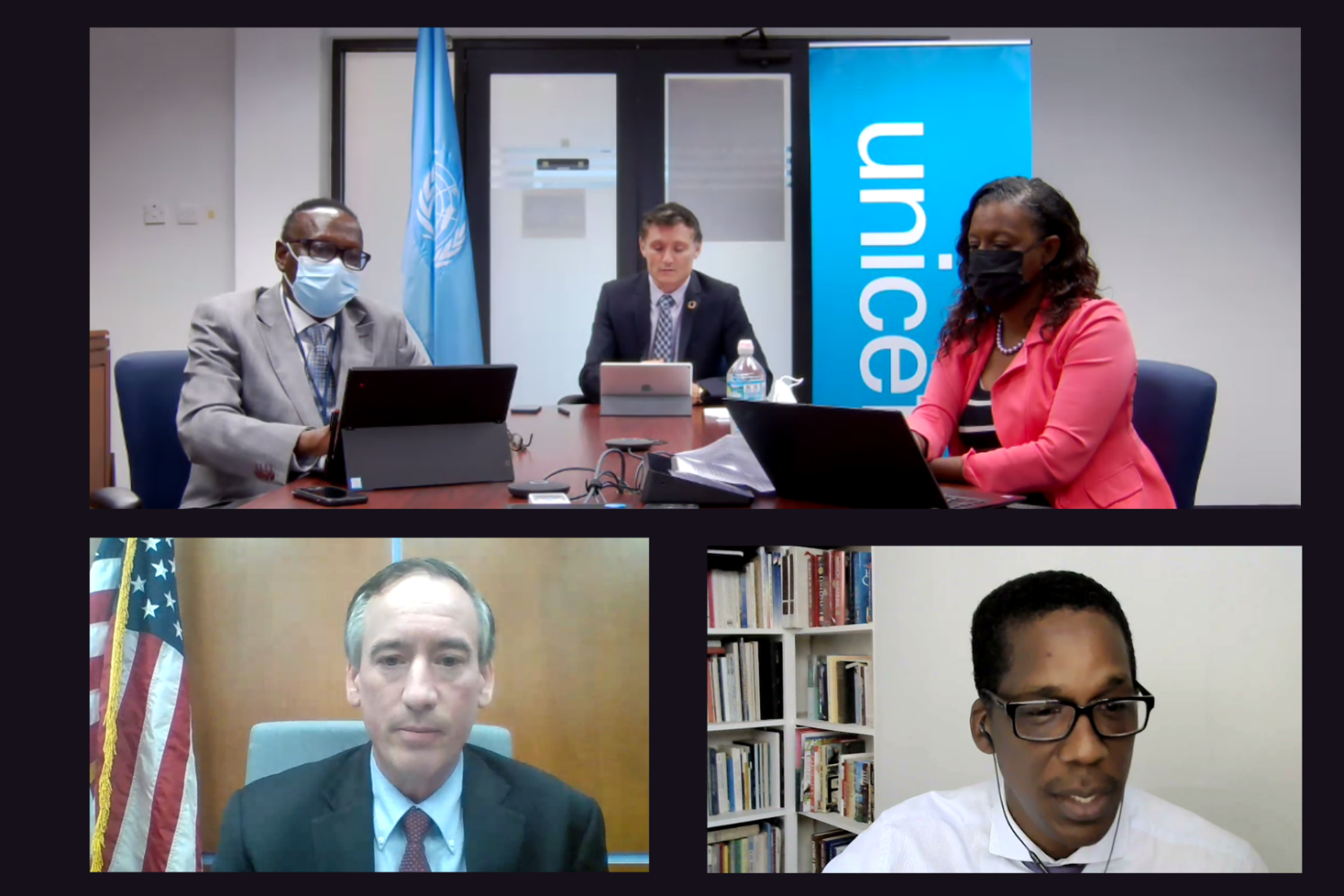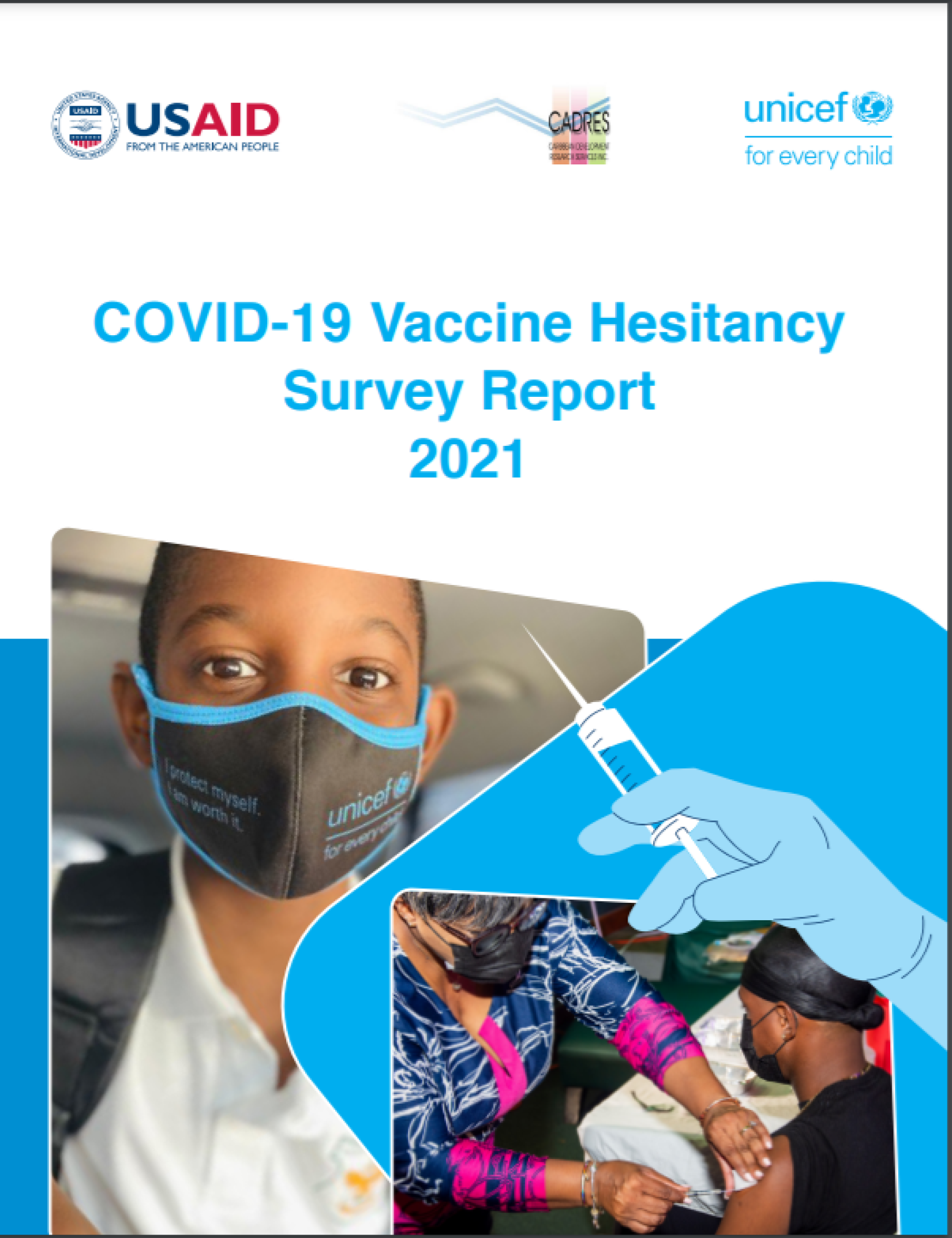Vaccine hesitancy: Landmark new study shows us the way forward, says UN
17 January 2022

Bridgetown, 17 January 2022. We now have high-quality information on how to tackle the vexed question of vaccine hesitancy and we must use it wisely, according to UN Resident Coordinator for Barbados and the Eastern Caribbean, Didier Trebucq.
Speaking at the 14 January virtual launch of a groundbreaking study on vaccine hesitancy across six countries in the subregion, Mr. Trebucq noted, “If we are to find our way out of this pandemic, vaccination is the best answer. If we don’t get the pandemic under control, we may well be looking at a lost decade of development.”
More than 5,000 people were interviewed for the study across Barbados, Dominica, Grenada, St. Lucia, St. Vincent and the Grenadines and Trinidad and Tobago. Commissioned by UNICEF, funded by USAID and conducted by the Caribbean Development Research Services Inc (CADRES), the wide-ranging study reports that the typical unvaccinated person in the region is under 30, out of formal work and educated to secondary level.
The report also reveals that unvaccinated respondents believe that the vaccines were developed too quickly, are uncertain about what is in them and it is simply their choice not to take them. According to Mr. Trebucq, there is room for hope however.
“The study provides insight into what might change minds. 51 per cent cite the need for more medical and scientific information. Over 40 per cent want to know more about side effects and efficacy. 30 per cent want information on the impact of the vaccine on sexual health and their ability to have children. These are all rich veins to explore.”
The research also suggests that vaccine promotion interventions need to be tailored to their audience. “It shows us that different countries have different vaccine hesitancy factors and we need to respond accordingly. No one size fits all,” said Dr. Aloys Kamuragiye, UNICEF Representative for the Eastern Caribbean Area. “I urge all ministries of health and other stakeholders working to address the vaccine hesitancy phenomenon to take this data seriously.” he added.
Several ministers of health at the launch agreed that the research would help guide future policy. Lt. the Most Honourable Col. Jeffrey Bostic, Minister of Health and Wellness in Barbados, maintained:
“We are really happy and appreciative of the efforts on the part of USAID and UNICEF and all those responsible for doing this very important work…We look forward to implementing as many of the recommendations as possible.”
The importance of working collaboratively was also stressed by Dave Schnier, Deputy Chief of Mission for the US Embassy in Barbados.
“Through partnerships with government and stakeholders the US is committed to helping Caribbean governments everywhere overcome vaccine hesitancy. We are proud to work with our partners gathered here to achieve this goal.”

Read the full Report 👉🏽: https://easterncaribbean.un.org/en/168841-covid-19-vaccine-hesitancy-su…
For more information, contact Lisa McClean-Trotman: (246) 467-6157 / Email: lmccleantrotman@unicef.org
Follow us on: Facebook, YouTube, Instagram & Twitter
http://www.unicef.org/easterncaribbean


